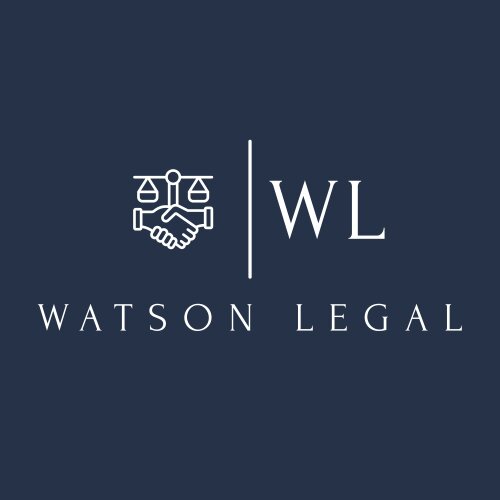Best Sexual Harassment Lawyers in Athlone
Share your needs with us, get contacted by law firms.
Free. Takes 2 min.
List of the best lawyers in Athlone, Ireland
1. About Sexual Harassment Law in Athlone, Ireland
In Athlone, Sexual Harassment is governed by national law that applies across Ireland. The core protections come from the Employment Equality Acts, which prohibit harassment in the workplace and in recruitment. These laws cover unwelcome sexual advances, comments, or conduct that creates a hostile environment. If you experience this in Athlone, you have rights and potential avenues for complaint and redress.
Criminal law can also apply in some cases, particularly when the conduct becomes criminal harassment or abuse. In addition, employers have duties under health and safety law to provide a safe workplace that protects employees from harassment. For residents of Athlone, the main enforcement bodies are the Workplace Relations Commission (WRC), the Garda Síochána (police), and local employers’ human resources processes. For more detail, see official government and statutory sources cited below.
Key takeaway for Athlone residents: Harassment in work, interviews, or training environments is typically covered by the Employment Equality Acts, with support and remedies available through the WRC and, if needed, the courts. If the conduct involves threats or violence, contact the Garda Síochána promptly.
For formal guidance on rights and processes, you can consult official information from Ireland’s government portal and statutory bodies. These resources explain when a complaint can be made, how investigations proceed, and what relief or compensation may be available.
Source notes: Employment Equality Acts prohibit harassment in employment contexts; the Workplace Relations Commission handles complaints; Garda Síochána handles criminal offences. See Employment Equality Act 1998 (as amended) and Workplace Relations Commission, Garda Síochána.
2. Why You May Need a Lawyer
Below are concrete, real-world scenarios that often require legal advice from a solicitor or legal counsel in Athlone. Each situation can raise different rights, procedures, and remedies.
- Your supervisor in a local Athlone employer makes repeated inappropriate comments or advances that create a hostile work environment.
- You were rejected for a promotion or a job application in Athlone after refusing unwelcome sexual attention, and you suspect discrimination.
- A colleague or customer at a local hospital, hotel, or retail business in Athlone engages in persistent harassment, affecting your safety and work performance.
- You are a student or staff member at a local higher or further education institution in or near Athlone and experience sexual harassment on campus or in a placement site.
- You want to explore civil remedies for damages or protective orders while also reporting the incident to your employer and authorities.
- You need guidance on whether to pursue a complaint with the Workplace Relations Commission (WRC) versus pursuing criminal charges through the Garda Síochána.
A qualified solicitor or barrister in Athlone can assess whether your case falls under the Employment Equality Acts, advise on procedures, draft or review internal workplace policies, and represent you in negotiations or at a WRC hearing. They can also explain potential remedies such as compensation, reinstatement, or a settlement agreement.
3. Local Laws Overview
The following laws govern sexual harassment in Athlone and across Ireland. They are national statutes, but enforcement and reporting occur through local channels such as employers, WRC, and Garda Síochána in Athlone and County Westmeath.
- Employment Equality Acts 1998-2015 (as amended) - Prohibit harassment, including sexual harassment, in employment, recruitment, and related activities. The 2015 amendments clarified definitions and strengthened enforcement. These acts apply to most workplaces in Athlone and require employers to prevent harassment and provide accessible complaint processes. Source: Employment Equality Act 1998 (as amended)
- Safety, Health and Welfare at Work Act 2005 (as amended) - Requires employers to provide a safe and healthy working environment, which includes protection from harassment and psychosocial hazards. Employees in Athlone may pursue remedies where the workplace safety standards are not met. Source: Safety, Health and Welfare at Work Act 2005
- Non-Fatal Offences Against the Person Act 1997 - Establishes criminal offences for harassment and related conduct that causes fear or distress. If harassment crosses into criminal behaviour, Garda Síochána may investigate and prosecute. Source: Non-Fatal Offences Against the Person Act 1997
Recent development note: The Employment Equality Acts were amended in 2015 to strengthen protections against harassment and discrimination across employment and recruitment. Enforcement and guidance are provided by the WRC and relevant courts. For current guidance in Athlone, consult WRC resources and legal counsel.
Local enforcement channels include the Workplace Relations Commission for civil and workplace disputes, and the Garda Síochána for criminal concerns. See official sources for details on how to initiate a complaint and what relief may be available.
4. Frequently Asked Questions
What is sexual harassment under Irish law?
Sexual harassment is unwelcome conduct of a sexual nature that affects a person’s dignity or creates a hostile work environment. It can occur through words, gestures, actions, or persistent behaviour. The Employment Equality Acts cover such conduct in employment settings.
How do I report workplace harassment in Athlone?
Start with your employer or HR department and keep records of incidents. If unresolved, you can file a complaint with the Workplace Relations Commission and seek guidance from a solicitor. You may also contact the Garda if the conduct is criminal.
When should I hire a solicitor for harassment?
Consult a solicitor if the conduct continues, if you need help interpreting your rights, or if you want formal remedies or compensation. A solicitor can assess whether to pursue WRC proceedings, civil action, or criminal charges.
Where can I file a complaint about harassment in Ireland?
You can file complaints with the Workplace Relations Commission for workplace or recruitment harassment. For criminal harassment or threats, contact the Garda Síochána. Local employment employers may also have internal complaint processes.
Why should I keep evidence of harassment?
Document dates, times, witnesses, messages, emails, and any impact on work. Evidence supports internal complaints, WRC claims, and possible civil or criminal actions.
Can I sue my employer for sexual harassment?
Yes, if the employer failed to prevent harassment or acted unlawfully. A solicitor can advise on potential remedies, including compensation and orders to stop the conduct.
Should I tell my employer about the harassment before contacting authorities?
It is usually advisable to report to HR or a manager first, unless the immediate risk requires contacting Garda. Your solicitor can help plan a careful approach.
Do I need to go to Court for harassment?
Many cases settle through the WRC or internal processes. Some matters proceed to a hearing in the Employment Appeals Tribunal or civil court if necessary, sometimes after mediation.
How much does a sexual harassment solicitor cost in Athlone?
Costs vary by case and solicitor. Some offer a free initial consultation, and others bill by an hourly rate or on a fixed-fee basis for specific services. Ask for a written estimate.
How long does a WRC complaint take to resolve?
Timeframes vary by case complexity. Conciliation and consideration may take several months, with potential extensions if the matter involves more complex issues or negotiations.
Do I qualify for compensation in harassment cases?
Compensation depends on factors such as the impact on your employment, health, and dignity. A solicitor can assess eligibility and help pursue appropriate remedies.
What is the difference between a civil complaint and a criminal case?
A civil complaint seeks remedies like compensation or injunctive relief through the WRC or courts. A criminal case seeks penalties through the Garda Síochána and the courts for criminal harassment or assault.
5. Additional Resources
- Workplace Relations Commission (WRC) - Enforces equality and employment rights, handles harassment complaints, and provides conciliation and guidance for employees and employers. https://www.wrc.ie/
- Garda Síochána - The national police service for reporting criminal harassment or related offences; offers guidance on safety and reporting procedures. https://www.garda.ie/
- Gov.ie - Employment Equality Act information - Official government portal with guidance on rights, remedies, and enforcement under the Employment Equality Act. https://www.gov.ie/en/publication/957d9-employment-equality-act-1998-as-amended/
6. Next Steps
- Document the incident timeline and collect all relevant materials (dates, witnesses, emails, messages, and any HR communications). Do this within 7 days if possible.
- Identify the route that fits your situation (internal employer complaint, WRC claim, or criminal report). Your choice will shape the timeline and remedies.
- Consult a solicitor in Athlone who specializes in employment and harassment law. Schedule an initial assessment within 1-2 weeks to review options and costs.
- Prepare a formal internal complaint if appropriate, and request written responses from the employer within a defined period (e.g., 2 weeks). Keep copies of all correspondence.
- Contact the Workplace Relations Commission to understand timelines and evidence requirements for a potential WRC case. Consider mediation if offered.
- Decide whether to pursue civil relief or criminal charges with your solicitor. Discuss potential outcomes, costs, and expected timelines with your lawyer.
- Seek support services if needed, such as confidential counselling or employee assistance programs. Prioritize your safety and wellbeing throughout the process.
Lawzana helps you find the best lawyers and law firms in Athlone through a curated and pre-screened list of qualified legal professionals. Our platform offers rankings and detailed profiles of attorneys and law firms, allowing you to compare based on practice areas, including Sexual Harassment, experience, and client feedback.
Each profile includes a description of the firm's areas of practice, client reviews, team members and partners, year of establishment, spoken languages, office locations, contact information, social media presence, and any published articles or resources. Most firms on our platform speak English and are experienced in both local and international legal matters.
Get a quote from top-rated law firms in Athlone, Ireland — quickly, securely, and without unnecessary hassle.
Disclaimer:
The information provided on this page is for general informational purposes only and does not constitute legal advice. While we strive to ensure the accuracy and relevance of the content, legal information may change over time, and interpretations of the law can vary. You should always consult with a qualified legal professional for advice specific to your situation.
We disclaim all liability for actions taken or not taken based on the content of this page. If you believe any information is incorrect or outdated, please contact us, and we will review and update it where appropriate.









